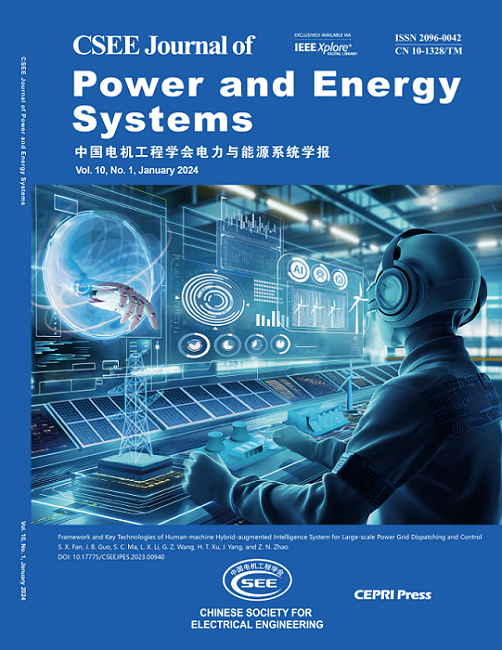Assessment and Enhancement of FRC of Power Systems Considering Thermal Power Dynamic Conditions
IF 5.9
2区 工程技术
Q2 ENERGY & FUELS
引用次数: 0
Abstract
Frequency stability and security have been a vital challenge as large-scale renewable energy is integrated into power systems. In contrast, the proportion of traditional thermal power units decreases during the decarbonization transformation process, resulting in poor frequency support. This paper aims to explore the potential of frequency regulation support, dynamic assessment, and capacity promotion of thermal power plants in the transition period. Considering the dynamic characteristics of the main steam working fluid under different working conditions, a nonlinear observer is constructed by extracting the main steam pressure and valve opening degree parameters. The real-time frequency modulation capacity of thermal power units can provide a dynamic state for the power grid. A dynamic adaptive modification for primary frequency control (PFC) of power systems, including wind power and thermal power, is proposed and improved. The power dynamic allocation factor is adaptively optimized by predicting the speed droop ratio, and the frequency modulation capability of the system is improved by more than 11% under extreme conditions. Finally, through the Monte Carlo simulation of unit states of the system under various working conditions, the promotion of the frequency regulation capacity with high wind power penetration (WPP) is verified.考虑热功率动态条件的电力系统 FRC 评估与改进
随着大规模可再生能源融入电力系统,频率稳定和安全一直是一个重要挑战。相比之下,传统火电机组在去碳化转型过程中比例下降,导致频率支持效果不佳。本文旨在探索转型期火电厂调频支持、动态评估和容量提升的潜力。考虑到不同工况下主蒸汽工作流体的动态特性,通过提取主蒸汽压力和阀门开度参数,构建了非线性观测器。火电机组的实时调频能力可为电网提供动态状态。提出并改进了包括风电和火电在内的电力系统一次频率控制(PFC)的动态自适应修正。通过预测速降比,自适应地优化了功率动态分配系数,使系统在极端条件下的频率调制能力提高了 11% 以上。最后,通过对各种工况下系统的单元状态进行蒙特卡罗仿真,验证了高风电渗透率(WPP)对频率调节能力的促进作用。
本文章由计算机程序翻译,如有差异,请以英文原文为准。
求助全文
约1分钟内获得全文
求助全文
来源期刊

CSEE Journal of Power and Energy Systems
Energy-Energy (all)
CiteScore
11.80
自引率
12.70%
发文量
389
审稿时长
26 weeks
期刊介绍:
The CSEE Journal of Power and Energy Systems (JPES) is an international bimonthly journal published by the Chinese Society for Electrical Engineering (CSEE) in collaboration with CEPRI (China Electric Power Research Institute) and IEEE (The Institute of Electrical and Electronics Engineers) Inc. Indexed by SCI, Scopus, INSPEC, CSAD (Chinese Science Abstracts Database), DOAJ, and ProQuest, it serves as a platform for reporting cutting-edge theories, methods, technologies, and applications shaping the development of power systems in energy transition. The journal offers authors an international platform to enhance the reach and impact of their contributions.
 求助内容:
求助内容: 应助结果提醒方式:
应助结果提醒方式:


